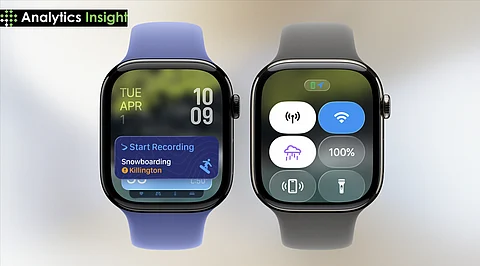

Meta is reviving its long-awaited AI wearable project to enter the global smartwatch market. The company is preparing to compete with Apple and Samsung, now the dominant leaders in the segment. The upcoming Meta smartwatch is reportedly back in development and could make a surprise appearance as early as September 2025.
Before the project was put on hold, Reality Labs aimed to bring the smartwatch into a futuristic realm. It would have featured wrist-based neural-signal reading and was planned to add the neural signal interpretation system for an AI assistant-based, more intelligent, hands-free interaction. That is why the company restarted the project, intending to change how smartwatches work in an AI-powered world.
The new Meta smartwatch is said to revive the scrapped 2021 endeavor code-named 'Milan.' Early prototypes provided unique hardware: curved displays, front-facing 5MP cameras, and 10MP rear shooters.
A leaked 2022 variant with a gold-hued case and two physical buttons reiterated the term 'premium' in Meta's design lexicon. Huaqin Technology is advancing hardware development. The new version may focus mainly on AI and camera-based interactions, which could be significant in the smartwatch segment.
Reports say the smartwatch will use neural signal tracking, an innovation initially shelved due to technical glitches involving the rear camera. This issue contributed to the project's cancellation in June 2022. Meta may now have resolved those challenges.
Meta is trying to enter an industry long dominated by Apple and Samsung. One aspect that might set it apart is a camera-oriented approach with an AI assistant, a capability not yet quite common in mainstream wearables.
The company has yet to confirm whether the device will be launched during Meta Connect 2025, which is scheduled for September 17–18 in the US.
Meta's previous attempt at wearables struggled with hardware hurdles and unclear use cases. If this upcoming model addresses those issues, it could carve out a niche, especially if paired smartly with the tech giant's AI glasses. Whether it can stand tall against Apple's ecosystem will depend on execution, battery life, and how useful those cameras are for users.
